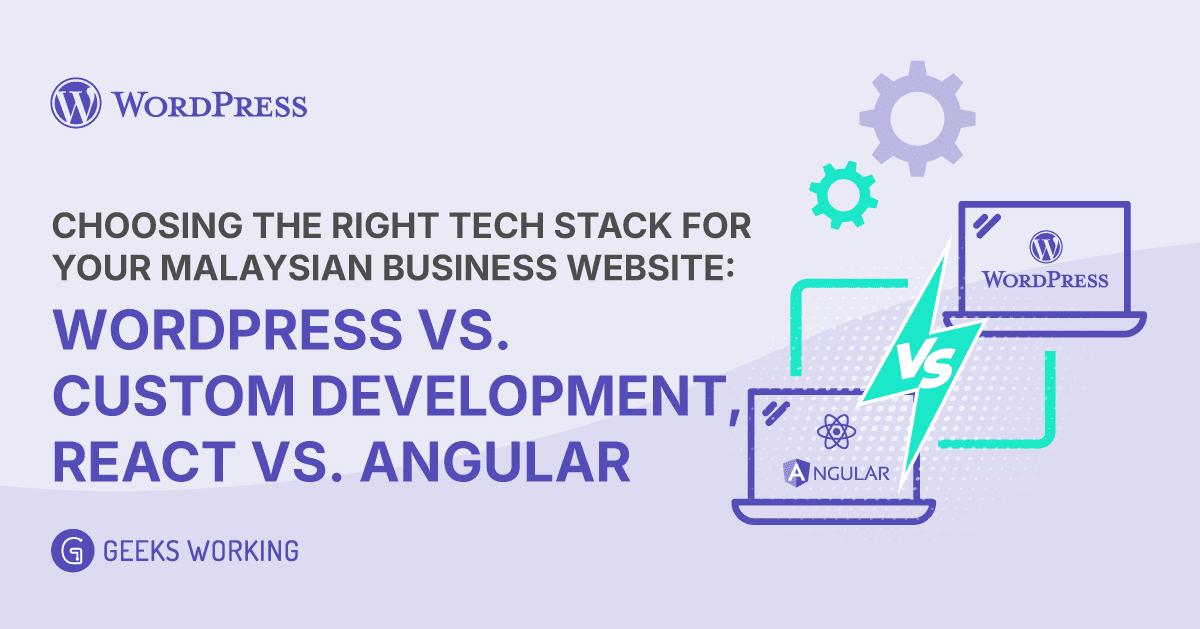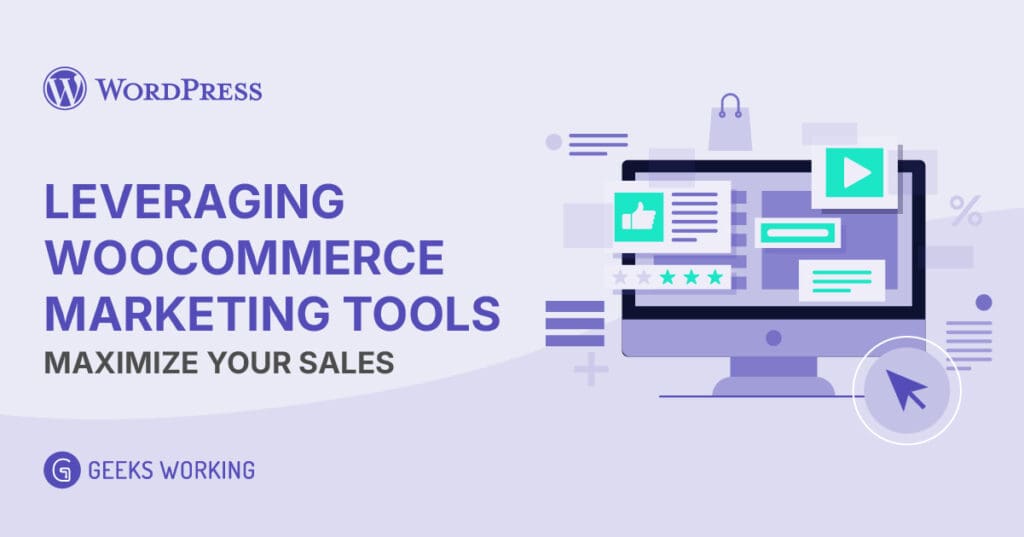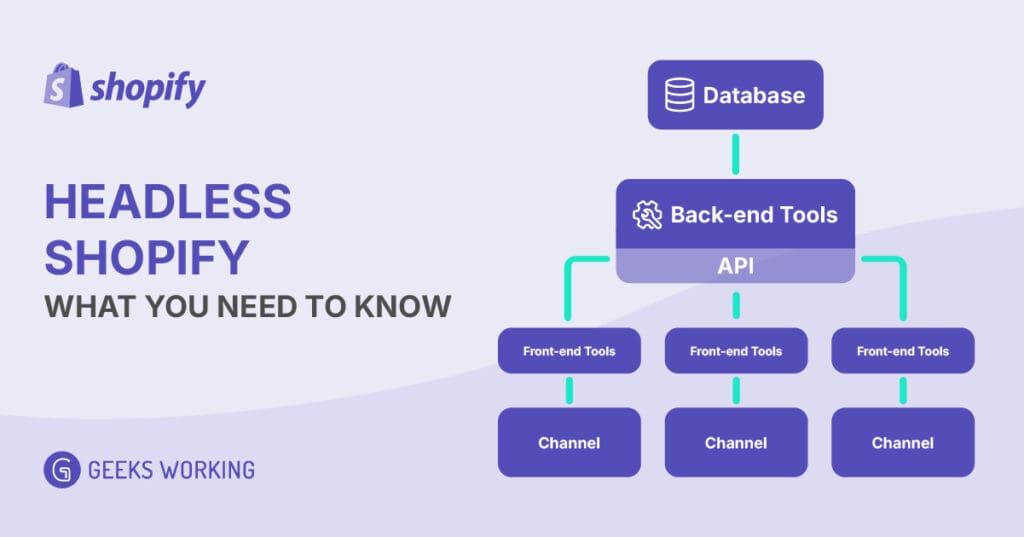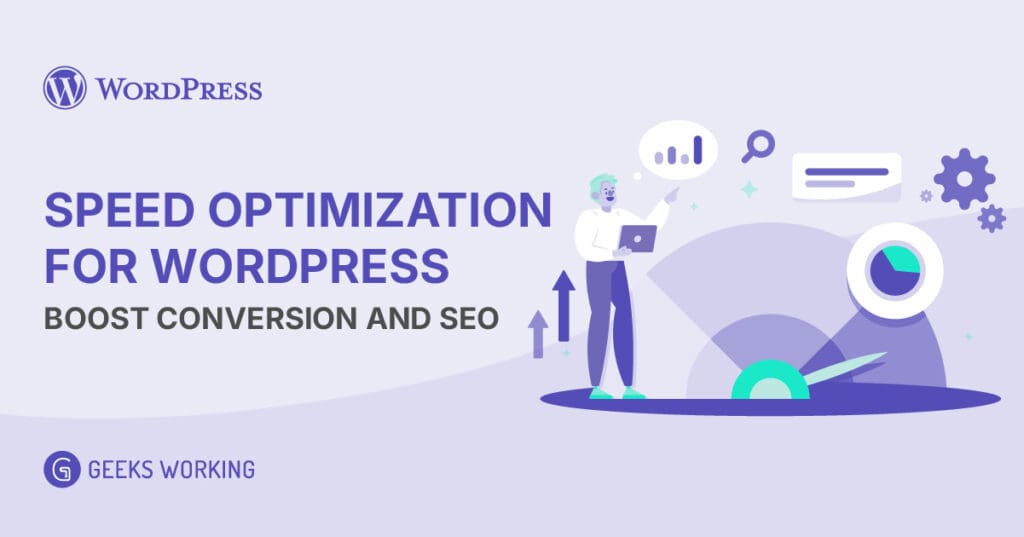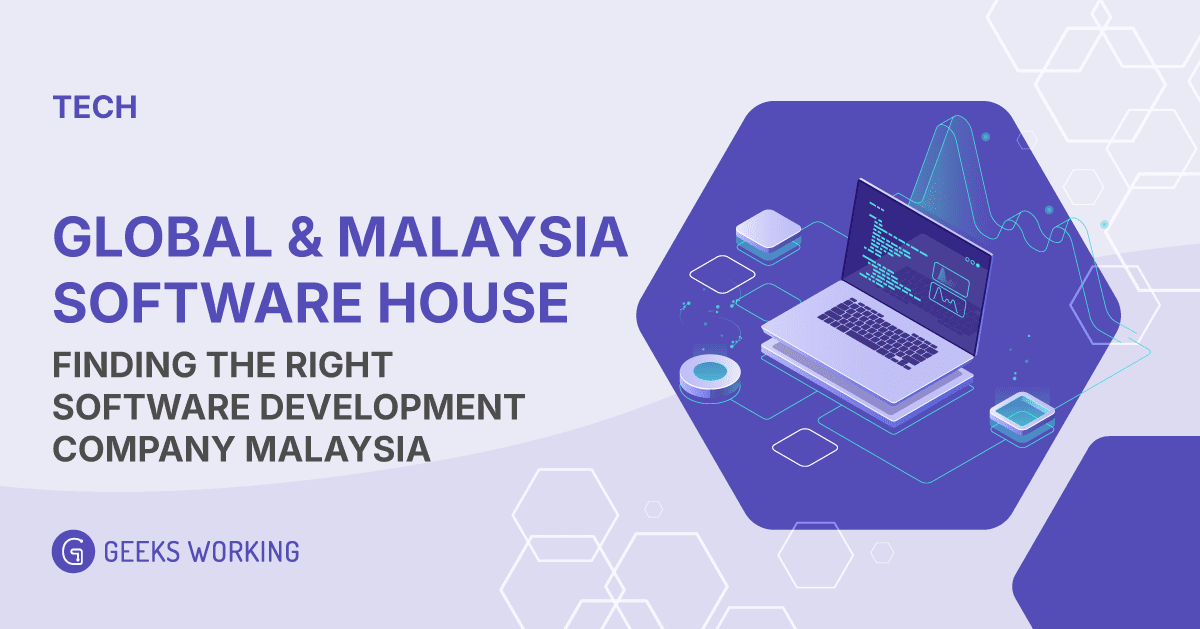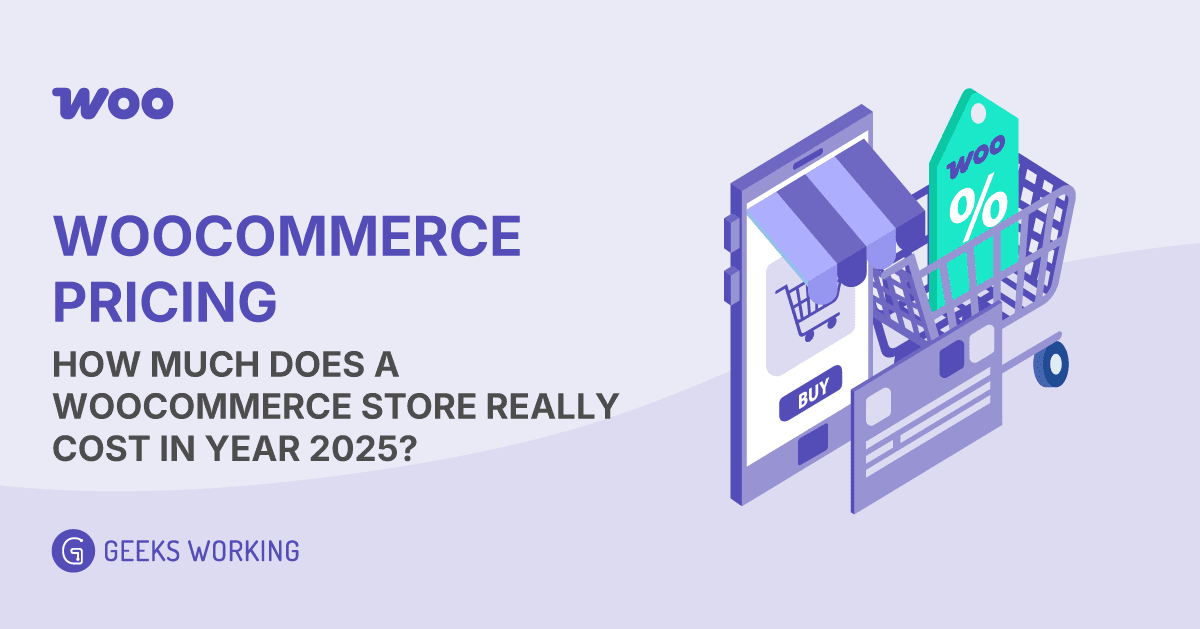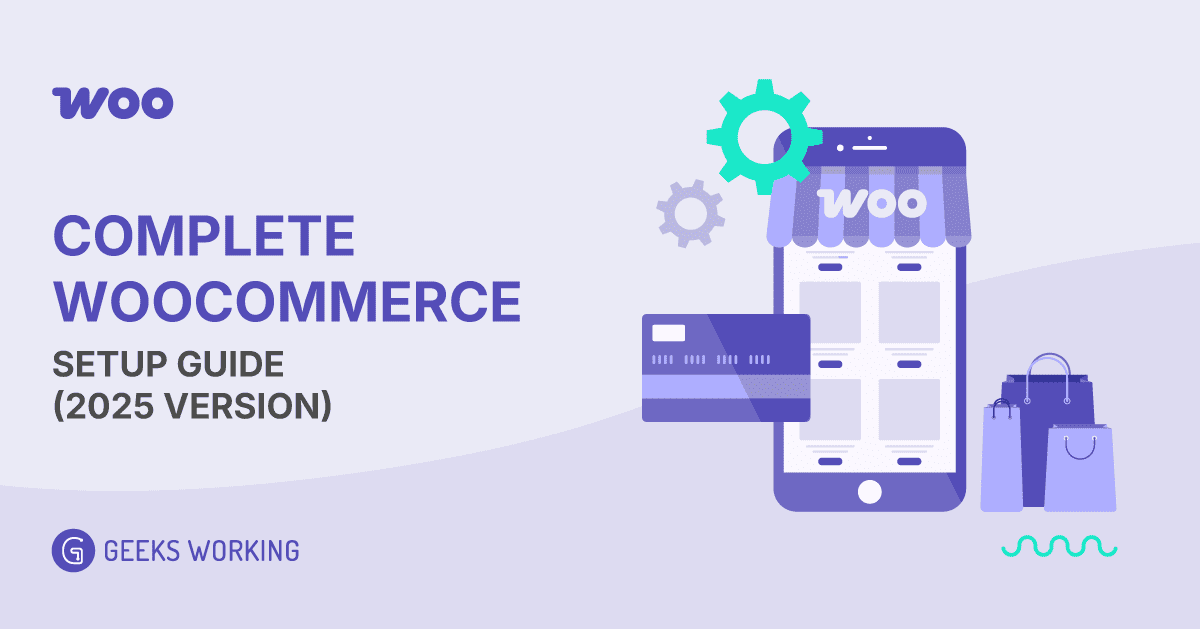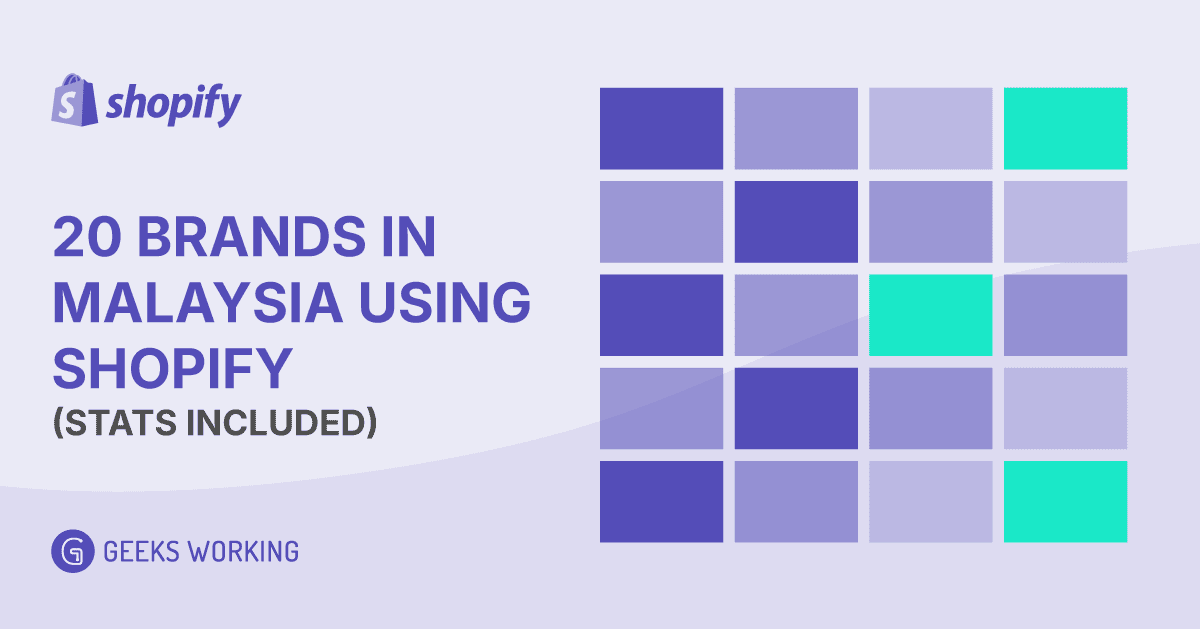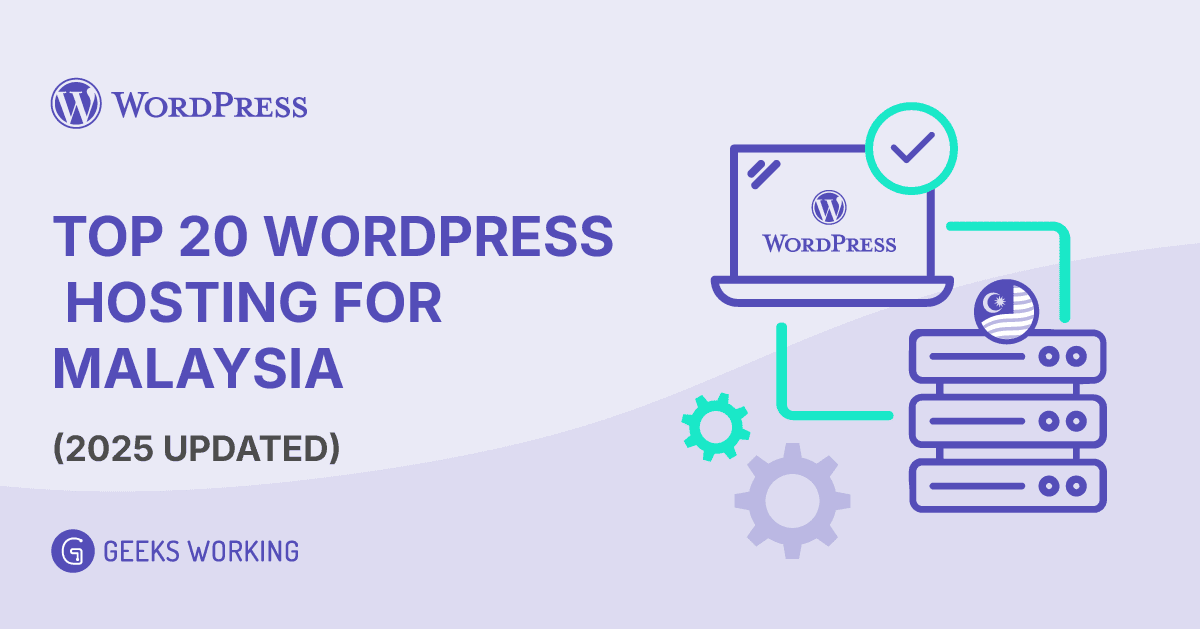Imagine a potential customer searching for your business online. They find your website, but it’s slow, outdated, or doesn’t even display properly on their phone. In Malaysia’s increasingly digital landscape, where smartphones are practically an extension of our hands and online shopping is booming, that first impression can make or break your business. Your website is your digital kedai (shop), and just like a physical storefront, it needs to be inviting, functional, and reflective of your brand.
But with so many web development options available – from ready-made solutions like WordPress to complex custom builds, and frameworks like React and Angular – how do you navigate this digital pasar (market) and choose the right tools for your Malaysian business? That’s where we come in.
This blog post will guide you through the maze of tech stacks, breaking down the pros and cons of WordPress, custom software development, React, and Angular, specifically tailored to the needs of businesses operating in Malaysia. We’ll explore how these technologies can address the unique challenges and opportunities presented by our local market, from supporting Bahasa Malaysia and integrating local payment gateways to ensuring seamless mobile experiences for our highly connected population. Let’s find the perfect digital foundation for your business’s success.
WordPress: The User-Friendly Option
For many Malaysian businesses, especially small to medium-sized enterprises (SMEs) and startups, the need for a professional online presence is undeniable, but so is the constraint of budget and technical expertise. That’s where WordPress shines. Think of WordPress as a pre-built rumah kedai (shop house) – the basic structure is there, and you can easily customize it to fit your needs.
Essentially, WordPress is a Content Management System (CMS) that simplifies website creation and management. It’s renowned for its user-friendly interface, allowing you to build and update your website without needing to be a coding expert.
Pros of WordPress for Malaysian Businesses:
- Ease of Content Management (Mudah Digunakan): Updating your website with new products, services, or blog posts is as simple as typing in a document. This is crucial for businesses that need to frequently update their online presence.
- Large Community and Extensive Plugin Library (Banyak Plugin): WordPress boasts a massive library of plugins, many of which are tailored to the Malaysian market. Need to integrate FPX for local online payments? There’s a plugin for that. Want to add a Bahasa Malaysia translation? You’ll find a plugin for that too. This vast ecosystem ensures you can find solutions for almost any requirement.
- Relatively Lower Development Costs (Kos Rendah): Compared to custom development, WordPress websites are generally more affordable, making it an attractive option for businesses on a budget.
- Suitable for Smaller Businesses and Blogs: If you’re running a small online store, a blog, or a service-based business, WordPress provides all the essential tools you need.
- Availability of Local WordPress Developers (Pembangun Tempatan): Finding WordPress developers in Malaysia is relatively easy, ensuring you have access to local support and expertise.
Cons of WordPress:
- Limited Customization for Complex Functionalities (Had Penyesuaian): While WordPress offers customization, it may not be suitable for highly complex web applications with unique requirements.
- Potential Security Vulnerabilities (Risiko Keselamatan): Like any popular platform, WordPress is a target for hackers. Regular updates and security plugins are crucial to mitigate these risks.
- Performance Issues with Heavy Customization (Prestasi): Overusing plugins or heavily customizing your theme can slow down your website, impacting user experience.
Suitable Use Cases in Malaysia:
- Small business websites showcasing products or services.
- Blogs and content-driven websites, like online magazines or news portals.
- Basic e-commerce stores using WooCommerce.
- Showcase websites for local restaurants, cafes, and other local businesses.
In short, WordPress provides a robust and affordable solution for many Malaysian businesses looking to establish a strong online presence. It’s a great starting point, allowing you to quickly launch your website and grow your business online.”
Custom Development: Tailored Solutions – Building Your Digital Istana (Palace)
While WordPress offers a convenient and cost-effective entry point, some Malaysian businesses require a digital presence that’s as unique and intricate as their operations. That’s where custom web development comes into play. Think of it as building your own digital istana (palace) – designed and constructed precisely to your specifications.
Custom development involves building a website or web application from the ground up, using programming languages and frameworks tailored to your specific needs. This approach offers unparalleled flexibility and scalability, allowing you to create a truly bespoke online experience.
Pros of Custom Development for Malaysian Businesses:
- Highly Customizable to Meet Specific Business Needs (Penyesuaian Penuh): Unlike pre-built solutions, custom development allows you to implement any functionality you can imagine. This is crucial for businesses with unique workflows or complex requirements.
- Scalability for Future Growth (Boleh Dibesarkan): As your business expands, your website can grow with you. Custom solutions are designed to handle increasing traffic and data loads, ensuring long-term performance.
- Enhanced Security (Keselamatan Tinggi): Custom-built websites can be fortified with robust security measures, minimizing the risk of cyberattacks and data breaches. This is particularly important for businesses handling sensitive customer information.
- Integration with Specialized Systems (Integrasi Sistem): Custom development enables seamless integration with existing business systems, such as inventory management, CRM, and local payment gateways like FPX and eWallets.
- Laravel Framework Advantage: For many of these custom builds, we use the Laravel PHP framework. Laravel is a modern, powerful, and elegant framework, that drastically speeds up development time, and creates secure, and maintainable web applications. Many Malaysian developers specialize in Laravel, ensuring local support.
Cons of Custom Development:
- Higher Development Costs (Kos Lebih Tinggi): Custom development projects typically require a larger investment compared to pre-built solutions.
- Longer Development Timelines (Masa Pembangunan Lebih Lama): Building a website from scratch takes time, especially for complex projects.
- Requires Specialized Developers (Pembangun Pakar): You’ll need to engage experienced developers with expertise in the chosen programming languages and frameworks, like Laravel.
Suitable Use Cases in Malaysia:
- Complex E-commerce Platforms (Platform E-dagang Kompleks): Businesses with extensive product catalogs, intricate checkout processes, or unique shipping requirements.
- Web Applications with Unique Functionalities (Aplikasi Web Unik): Startups with innovative ideas or businesses offering specialized online services.
- Large Enterprises with Specific Requirements (Perusahaan Besar): Corporations with complex operational needs and strict security standards.
- Businesses handling Sensitive Data (Data Sensitif): Financial institutions, healthcare providers, or any business that prioritizes data security.
- Systems that require high levels of automation.
In essence, custom development, particularly with the power of Laravel, empowers Malaysian businesses to create digital experiences that perfectly align with their goals. While it requires a greater investment, the long-term benefits of flexibility, scalability, and security make it a worthwhile option for businesses seeking a truly unique and robust online presence.
React vs. Angular: Choosing Your JavaScript Framework – Powering Dynamic User Experiences
In today’s fast-paced digital world, users expect websites and web applications to be interactive, responsive, and engaging. That’s where JavaScript frameworks like React and Angular come into play. They act as the engine behind the scenes, powering dynamic user interfaces and creating seamless experiences.
Think of them as the advanced tools in a bengkel (workshop), allowing developers to build sophisticated and efficient web applications.
React: The Flexible and Lightweight Choice
- What is React? React is a JavaScript library developed by Facebook. It focuses on building user interfaces (UIs) by breaking them down into reusable components. Imagine building a Lego structure, where each brick is a component.
- Pros of React:
- Performance (Prestasi): React’s virtual DOM (Document Object Model) optimizes rendering, leading to faster loading times and smoother user experiences. This is crucial for mobile users in Malaysia, where network speeds can vary.
- Flexibility (Fleksibiliti): React allows developers to choose the tools and libraries they need, providing greater flexibility in project development.
- Large Community (Komuniti Besar): React has a massive and active community, providing ample resources, support, and readily available component libraries. This is a great resource for Malaysian developers.
- Suitable for Single Page Applications (SPA): Excellent for applications where the user interacts within one page, like dashboards or social media feeds.
- Cons of React:
- Steeper Learning Curve for Beginners (Lengkung Pembelajaran): While flexible, React’s ecosystem can be overwhelming for beginners.
- Requires More Tooling: React itself is only the UI library, so developers have to select additional libraries for routing, state management, etc.
- Use Cases in Malaysia:
- E-commerce platforms with dynamic product displays.
- Interactive dashboards for business analytics.
- Social media applications and community forums.
Angular: The Comprehensive Framework
- What is Angular? Angular is a comprehensive JavaScript framework developed by Google. It provides a complete solution for building complex web applications, including routing, state management, and form handling.
- Pros of Angular:
- Robust Structure (Struktur Kukuh): Angular’s opinionated structure provides a consistent and organized development environment.
- Enterprise-Level Features (Ciri-ciri Perusahaan): Angular offers features like dependency injection and comprehensive testing tools, making it suitable for large-scale projects.
- Strong Tooling (Alat Kuat): Angular’s CLI (Command-Line Interface) simplifies development tasks and provides powerful tools for scaffolding and deployment.
- Cons of Angular:
- Larger Bundle Size (Saiz Fail Besar): Angular applications can have larger bundle sizes, which may impact initial loading times, especially on slower connections.
- Steeper Learning Curve (Lengkung Pembelajaran Lebih Tinggi): Angular’s comprehensive nature can make it more challenging to learn for beginners.
- Use Cases in Malaysia:
- Complex enterprise applications for financial institutions or government agencies.
- Large-scale e-commerce platforms with intricate functionalities.
- Web applications requiring robust data management.
Which Framework is Better for Malaysian Businesses?
The choice between React and Angular depends on the specific needs of your project. If you’re building a dynamic user interface or a single-page application, React’s flexibility and performance make it an excellent choice. For complex enterprise applications requiring a robust structure and comprehensive features, Angular is a strong contender.
Many Malaysian developers are proficient in both React and Angular, so you’ll find local expertise readily available. Consider your project’s complexity, budget, and long-term maintenance needs when making your decision.
Considerations Specific to the Malaysian Market – Navigating Local Nuances
Building a website for a Malaysian audience goes beyond simply translating content. It requires understanding the unique cultural, linguistic, and technological landscape of our nation. Here are some crucial considerations to keep in mind:
- Multilingual Support (Sokongan Pelbagai Bahasa):
- Bahasa Malaysia is the national language, and it’s essential to offer website content in Bahasa Malaysia.
- Consider including other commonly spoken languages, such as English, Mandarin, and Tamil, to cater to Malaysia’s diverse population.
- Ensure seamless language switching and accurate translations to avoid miscommunication.
- Local Payment Gateways (Gerbang Pembayaran Tempatan):
- Integrate popular Malaysian payment gateways like FPX, eWallets (Touch ‘n Go eWallet, GrabPay, Boost), and online banking options.
- Ensure a smooth and secure checkout process to build trust and encourage online transactions.
- Many Malaysians are very comfortable using their mobile phones for all purchases, so having easy mobile payment options is very important.
- Mobile Connectivity (Sambungan Mudah Alih):
- Malaysia has a high mobile penetration rate, so prioritize mobile-first design and development.
- Optimize website performance for mobile devices, ensuring fast loading times and responsive layouts.
- Consider the varying mobile network speeds and ensure your website functions smoothly even on slower connections.
- Cultural Sensitivity (Sensitiviti Budaya):
- Use culturally appropriate imagery, colors, and design elements that resonate with the Malaysian audience.
- Avoid any content that may be offensive or culturally insensitive.
- Understand the importance of religious holidays and events, and how that may affect online business.
- Cloud Hosting (Hos Awan):
- Choose a reliable cloud hosting provider with servers located in or near Malaysia to minimize latency and improve website speed.
- Ensure your hosting provider offers robust security measures to protect against cyber threats.
- Consider local cloud providers that understand the Malaysian market.
- Local Regulations and Compliance (Peraturan dan Pematuhan Tempatan):
- Understand and comply with Malaysian data privacy laws (PDPA) and any other relevant regulations.
- If handling online sales, ensure compliance with consumer protection laws.
- Understand any specific regulations that apply to your business sector.
By addressing these considerations, you can create a website that not only meets the technical requirements but also resonates with the hearts and minds of your Malaysian audience, fostering trust and building lasting relationships.
Making the Right Choice: Key Questions to Ask
Choosing the right tech stack for your Malaysian business website can feel like navigating a complex jalan (path). To ensure you make the best decision, ask yourself these crucial questions:
- What are your business goals? (Apakah matlamat perniagaan anda?)
- Are you aiming to generate leads, sell products online, or provide information to your customers?
- What are your long-term growth plans?
- Understanding your goals will help you determine the functionalities you need.
- What is your budget? (Apakah bajet anda?)
- Consider both the initial development costs and the ongoing maintenance expenses.
- WordPress offers a more affordable entry point, while custom development requires a larger investment.
- Find a balance between features and cost.
- What are your technical requirements? (Apakah keperluan teknikal anda?)
- Do you need complex functionalities, such as custom integrations or data management?
- Will you be handling sensitive data that requires robust security measures?
- Consider future scalability.
- What are your maintenance needs? (Apakah keperluan penyelenggaraan anda?)
- Do you have the in-house expertise to maintain your website, or will you need external support?
- WordPress requires regular updates and security patches, while custom solutions may require more specialized web maintenance.
- Consider ongoing costs.
- Do you have access to skilled developers? (Adakah anda mempunyai akses kepada pembangun mahir?)
- Are you planning to hire in-house developers, or will you be outsourcing the project?
- Ensure you have access to developers with expertise in the chosen technologies, be it WordPress, Laravel, React, or Angular.
- Malaysian developers are available for all of these technologies.
- How important is a mobile first approach? (Seberapa pentingkah pendekatan mudah alih dahulu?)
- With the high mobile phone usage in Malaysia, this should be a high priority.
- How will your customers access your site, and what devices will they be using?
- How important is local language support? (Seberapa pentingkah sokongan bahasa tempatan?)
- If you are targeting a wide Malaysian audience, Bahasa Malaysia support is essential.
- Do you need other languages supported?
By carefully considering these questions, you can make an informed decision that aligns with your business objectives and ensures a successful online presence in the Malaysian market.
Conclusion – Building Your Digital Success Story in Malaysia
In Malaysia’s dynamic digital landscape, your website is more than just an online presence; it’s a crucial tool for connecting with your customers, building your brand, and driving business growth. As we’ve explored, choosing the right tech stack – whether it’s the user-friendly approach of WordPress, the tailored solutions of custom development with Laravel, or the dynamic power of React or Angular – is a key decision that will shape your online success.
Remember, there’s no one-size-fits-all solution. The best tech stack for your business depends on your unique needs, budget, and long-term goals. Prioritize understanding your target audience, especially their mobile habits and language preferences, and ensure your website reflects the rich cultural tapestry of Malaysia.
If you’re still feeling unsure about which path to take, don’t hesitate to seek expert guidance. At [Your Agency Name], we’re passionate about helping Malaysian businesses navigate the complexities of web development and build a strong online presence. We understand the local market, the nuances of our culture, and the latest technological advancements.
Let us help you build your digital kejayaan (success). Contact us today for a free consultation and website audit, and let’s discuss how we can transform your online vision into reality. We’re here to be your trusted partner in building your digital success story in Malaysia.
